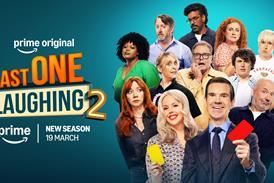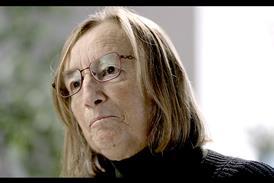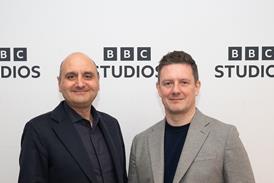As indies find it increasingly difficult to get projects green-lit with cash-strapped channels, Angus Henderson suggests some tips on improving your chances of winning commissions.
It has never been harder for independent production companies to get programmes commissioned. Many small and medium sized companies enjoyed a Champagne-popping year in 2008, but are now left alone at the bar sipping Bacardi Breezer through a straw, wondering where the cash is coming from in 2009.
With Channel 4 and other broadcasters seemingly in a worse financial state than a sausage seller at a veggie convention, the squeeze of the credit crunch on advertising spend and the rash of digital channels and internet viewing platforms means many commissioning editors are now looking for a ‘safe-bet’ in order to ensure their own job survival.
So how can companies position themselves and their treatments as ‘safe-bets’ in the eyes of commissioning editors?
To those unfamiliar with the commissioning process, the first thing to note is that ideas and treatments alone are not what get you commissions.
Commissions are based on three things; firstly, the person who brings the idea; secondly, the perception of the company they’re from; and thirdly, the idea itself.
Attach Money to projects
If you can successfully attach funding - it doesn’t have to be a huge investment - to the project, before it goes to the commissioning editor, it acts as a badge of faith and spreads the risk of the idea.
For example, say you wanted to make a documentary following three would-be snowboarding instructors through the trials and pit falls of becoming a professional qualified snow sport instructor. While the research is being done and the project is worked up into a strong proposal the MD of your production company calls ski and snowboard manufacturing giant Solomon with a view to attaching funding to the project in return for some of their equipment on screen.
Try to attract 10% of the total budget - just enough to be the soothing milky drink before bedtime, that ends the dull nagging ache of uncertainty in the commissioning editor’s beleaguered mind.
Suggest revenue opportunities
Television programmes now all have websites, so is there something from the show that can be sold to fans online? Can you sell the idea of a money-making package?
Play to your Strengths
Companies are 100% more likely to get projects commissioned that are from or related to, their perceived areas of expertise.
Take small-medium sized indie production house Wildfire Television - makers of the secret source of cider-swilling guilty viewing pleasure Time Team. Not only have they been able to stretch their brand to more adventurous ‘Specials’ projects but they’re reputation in the historical / archaeological area has meant that they can explore broader documentary-style projects.
But it works both ways Wildfire are unlikely to get a game show commissioned - unless they team-up with someone who has tried and tested formats in that area.
Collaborations People
Think about how many individual companies get together to go into the production of a British film. So if you’re a motor sports production company and you’ve got a great idea for a cookery program - let’s say following a classic car race round Italy while visiting different regional Italian restaurants - then before you take the commissioning editor to a secluded Soho luncheon spot, call a TV Chef’s production company and work out what’s on the menu.
Don’t penny-pinch the pilot
Never make the mistake of not making the taster-tape look good.
Don’t send the director off to climb Etna without a single word of Italian, an over-used Z1 and a bad case of the DTs when you’re pitching an HD doc on ‘Lava Rivers’ to National Geographic. Pay the money and if it doesn’t get commissioned you can still take it somewhere else - sometime else.
Angus Henderson is a director and cameraman at Alpine Films


























No comments yet